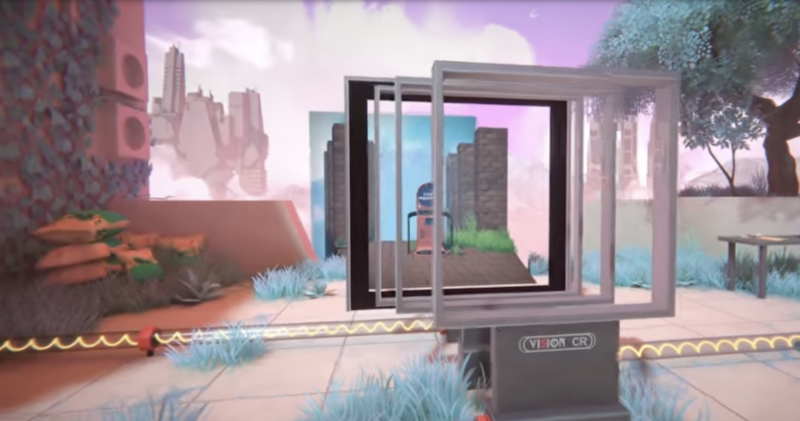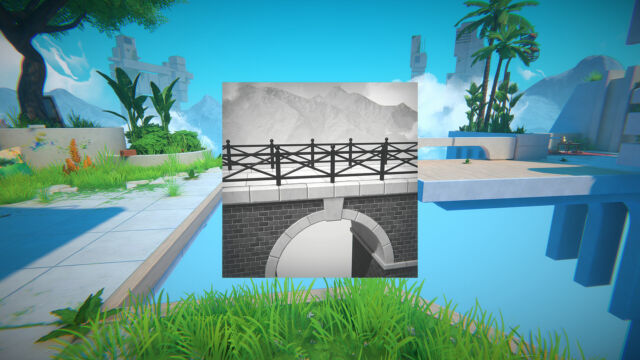What I played on my summer vacation

Careful Ars readers may have noticed that my byline was absent from the site for a large portion of July and August (if you missed me, please leave a comment so my editors will know how much. If you didn’t notice… do not leave a comment). That’s because I was using a large hunk of saved-up vacation time to tour around Europe from a “home base” in beautiful Switzerland, where I’ve been living and working for the summer.
The timing of that trip meant I didn’t have access to my usual PC gaming rig, consoles, or reliable Internet for the anticipated launch of Baldur’s Gate III, on which I’m now playing catch-up. It also means I needed some more bite-sized games that could be played during stolen moments on trains and in hotels during vacation travel downtime.
Luckily, a few recent indie releases on the Steam Deck were happy to fill in those bits of time. Here are a few of the games I found most interesting on my European travels.
Viewfinder

Gamers may take it for granted, but navigating complex 3D environments through the flat, 2D “magic window” of a TV or monitor is kind of strange, if you think about it too hard. And Viewfinder, if nothing else, is a game that directly forces you to think about it too hard, messing with your sense of 2D and 3D perspective in a truly brain-warping way.
Viewfinder‘s main puzzle-platform conceit is the ability to hold a flat 2D picture in front of your avatar’s first-person perspective and then “snap” a 3D version of that picture into the world based on that perspective. So a picture of a vertical column, for example, can be rotated and “snapped” to make a 3D column that acts as a horizontal bridge over an otherwise uncrossable gap.
It’s a hard concept to explain, but the first time you experience it in the game is a lot like the first time you used a portal gun to warp from one end of a room to the other in Portal. And while the concept might seem gimmicky and simple, Viewfinder takes pains to constantly take the basic idea in interesting new directions. Polaroid cameras, photocopiers, and even selfies all factor heavily into complex puzzles that require a great deal of lateral thinking to solve. An easy-to-use rewind system encourages experimentation, and a generous hint system makes it hard to get stuck for too long.
The only real problem with Viewfinder is that there isn’t more of it. After about five hours of constantly inventive and interesting puzzle platforming gameplay, the game comes to an abrupt end with a timed skills test that integrates pretty much everything you’ve learned over the game’s short running time. The game’s brevity gives it the feeling of an extended skills tutorial that never develops into its full potential.
Viewfinder forced my brain to see things from a literal new perspective, then threw me too quickly back into a real world that is missing that perspective. Here’s hoping a sequel can expand on the game’s strong ideas with even more mind-bending puzzles.
https://arstechnica.com/?p=1961763